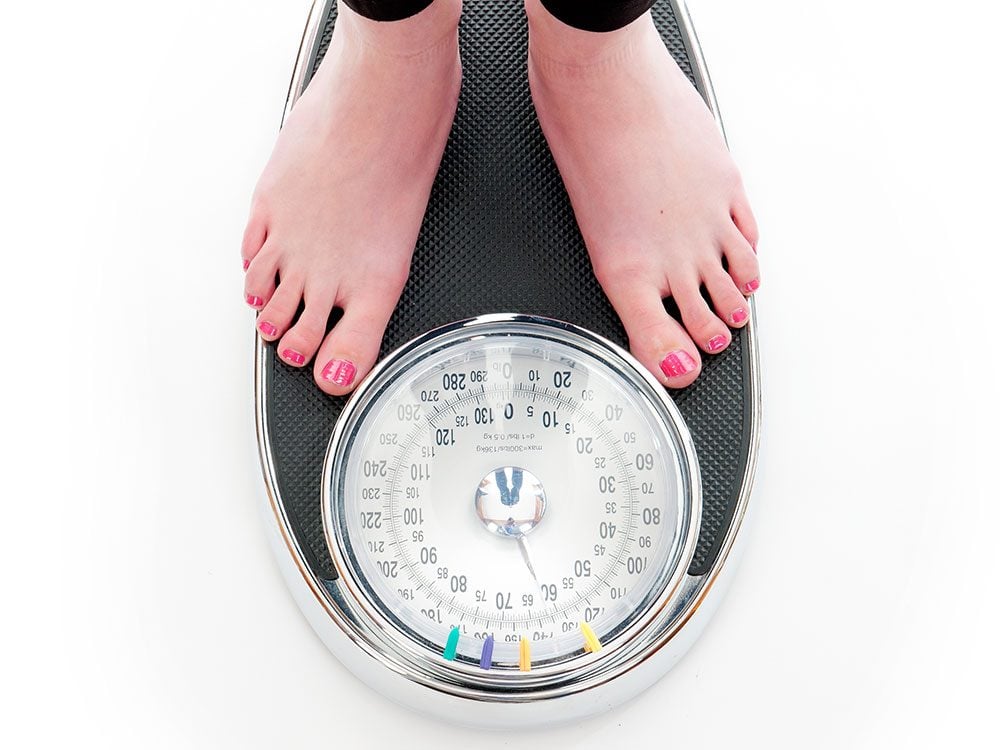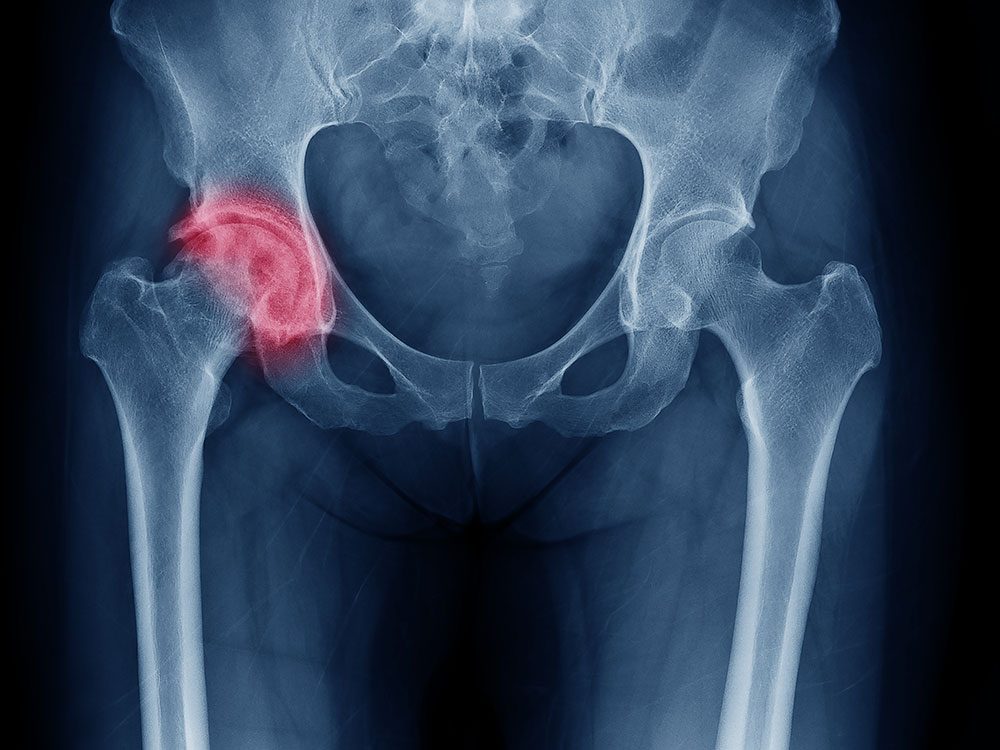
You can’t stay out of the fridge
If you’re way more ravenous than you used to be, hormone imbalance symptoms might be to blame. It could be thyroid hormones to blame. Thyroid hormones help regulate your metabolism, so if you’re hyperthyroid, you’ll burn through calories faster and be left craving more. On the other hand, if you’re stressed, too much of the stress hormone cortisol could signal you to eat up to fuel you through a fight or flight. “The body is perceiving that it’s under stress and needs to build a reserve,” says Pauline Camacho, MD, FACE, professor of medicine in the division of endocrinology and metabolism at Loyola University Medical Center. Check out these simple ways to boost your metabolism.

You’re losing hair where you want it
Polycystic ovary syndrome (PCOS) stimulates an overproduction of testosterone. It can cause hair loss in women that may resemble male pattern baldness with unwanted hair growth on the body. PCOS often first appears in adolescence, so your symptoms might have started after you first got your period. “You would know even in early teen years that they have manifestations,” says Dr. Camacho. “They have irregular periods, heavier than usual compared to other peers.” Here are some other sneaky reasons your hair is falling out—along with 11 natural remedies for hair loss worth trying.

Your weight is changing
Whether you’ve lost or gained pounds, weight change when your diet has stayed the same could signal a hormone imbalance. “The weight changes go beyond what people perceive would be expected for their activity or eating,” says Dr. Camacho. “They’re eating the same, but weight goes up over weeks or years.” Extra cortisol or testosterone—for instance from PCOS—might lead you to pack on pounds. On the other hand, excessive thyroid hormones might trigger sudden weight loss. Here are some other sneaky things making you gain weight.

You’re just not feeling like yourself
It probably comes as no surprise that hormonal changes during PMS or menopause can cause mood swings. But hormonal changes can happen for reasons beyond menopause. Thyroid hormones can affect your emotional state, too. “People who have hyperthyroidism can be kind of short-tempered and anxious,” says Dr. Camacho. “On the reverse side, those with hypothyroidism would be more depressive and passive.” Here are 14 things only people with anxiety will understand.

You’re never in the mood
Hormone imbalance symptoms can definitely affect your reproductive health and your desire for sex. A system called the gonadal axis connects the reproductive gonad organ to the pituitary gland and hypothalamus, parts of your brain responsible for hormone production. When one of these gets out of whack, libido changes may result. “Those three affect each other so that when you have a pituitary problem or a hypothalamus problem, there’s a problem in the gonadal hormones: testosterone and estrogen,” says Dr. Camacho. Too little estrogen or testosterone, or a fluctuation in thyroid hormones, are all connected, which could affect your sex drive. Believe it or not, these six foods can also kill your sex drive.

You feel fatigued
When any of your systems are unbalanced—including hormones—your body’s energy is going to suffer. For example, low thyroid hormones slow your body down while high levels kick you into high gear and can make you anxious; either way, you’re going to feel worn out. “Either there’s not enough energy or fuel, or your muscles are over-stimulated, and it uses up too much energy and you feel tired,” says Dr. Camacho. Check out these natural ways to boost your energy.

You’re tossing and turning
Without enough sleep for your body to restore itself, your hormone levels could get out of whack. On the other hand, hormone imbalance symptoms could be the cause, rather than effect. An overactive thyroid is the most common hormonal cause of sleeplessness, says Dr. Camacho. “Every part of the body is moving at twice or however many times normal speed, and that includes the brain too. They can’t fall asleep and keep waking up, and sleep is lighter,” she says. “If it’s hypothyroidism, the patients are kind of lethargic and sleep a lot.” Here are 20 more possible reasons you can’t sleep.

You’ve got brain fog
Growth hormones boost your brain, so if you’re low, you could find yourself with memory loss and decreased mental function. Low thyroid hormones could leave you with a hard time remembering information too. “Because patients are lethargic, they might be slow in terms of mental function,” says Dr. Camacho. These healthy habits can help boost your memory.

Your bones are weak
Under normal conditions, the body turns vitamin D into a hormone called calcitriol, which is needed for strong bones. “With fractures or broken bone, you would think about alterations in vitamin D,” says Dr. Camacho. The parathyroid hormone, which helps control the amount of calcium in the blood, could also affect bone health, which could explain why your bones are so brittle. Learn how to recognize the signs of thyroid cancer.